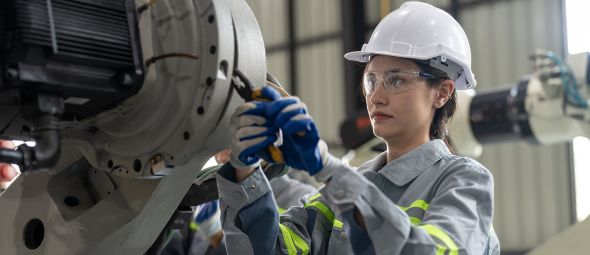Overview
Southern workers have unique barriers to building worker voice and power that restrict their economic mobility. Low labor standards in the South, alongside laws that restrict collective organizing and efforts to improve working conditions, leave low-wage workers more vulnerable to exploitation and limit their ability to advance. Overcoming these barriers requires innovative approaches to strengthen labor standards in the South.
Worker advocates, local policymakers, and employers in Southern states need reliable evidence on what’s needed to improve labor conditions and economic outcomes for low-wage workers, their communities, and their employers. Supporting Southern workers’ ability to get safe, secure, and family-sustaining jobs is key to their upward economic mobility.
Latest Content
Project Equity’s Employee Ownership State Policy Database
Grantee Research

What Works to Reduce Workers Changing Jobs in US Manufacturing
Extreme Heat at Work
WorkRise Research

WorkRise Shorts: Racial and Gender Discrimination in the Temporary Staffing Sector
Temporary Staffing Industry Testing Report
Grantee Research